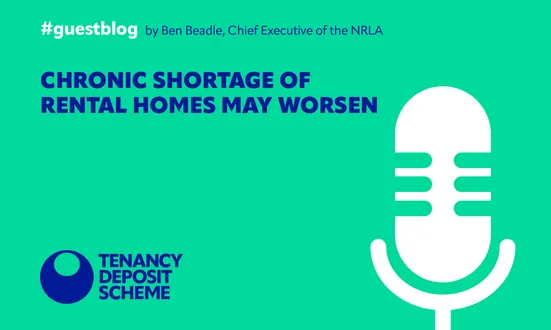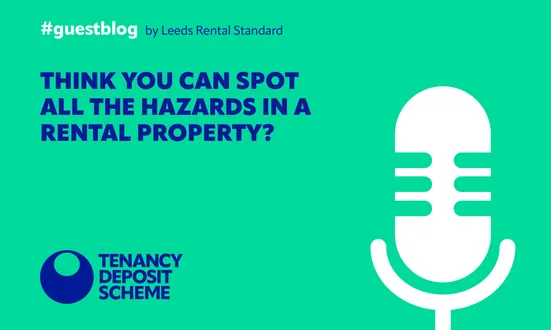In recent years, the UK private rented sector has witnessed a significant increase in government regulation to ensure better standards for tenants and improved management of properties. One such regulation that letting agents need to be aware of is ‘Selective Licensing’. This article aims to provide an overview to help letting agents understand what selective licensing is, what it entails, and its implications.
What is Selective Licensing?
Originally introduced as part of the 2004 Housing Act, the Selective Licensing Scheme (SLS) is a form of property licensing for privately rented properties. Local authorities have powers to introduce selective licensing of privately rented homes in order to tackle problems in their areas, or any parts of them, caused by low housing demand and/or significant anti-social behaviour. It now also includes areas experiencing poor property conditions, an influx of migration1 a high level of deprivation and high crime levels.
The scheme can be applied to a whole area or specific streets. Local authorities consult with relevant stakeholders, including local residents, landlords, tenants and letting agents, before introducing a SLS.
Landlords who rent out properties in an area that is subject to selective licensing must obtain a licence from the local authority for each of their properties.
How Does Selective Licensing Work?
Selective licensing may be applied to designated areas within a local authority’s jurisdiction where one or more of the issues below are present:
- low demand for housing (or is likely to become such an area)
- significant and persistent problems caused by anti-social behaviour
- properties in poor condition
- high levels of migration1
- high level of deprivation
- high levels of crime
Once an area is designated, all landlords who rent out properties within that area must apply to the local authority for a licence for each of their properties, unless they are exempt2
What do landlords and their agents need to do?
The specific criteria for obtaining a selective licence can vary between local authorities, however the overall aim of the SLS is to ensure that landlords meet certain standards and obligations to safeguard the well-being of tenants and improve the overall living conditions in the area. Generally, the licensing process involves assessing factors such as the landlord’s criminal record, financial stability, compliance with housing standards, and the management arrangements for the property.
There are, however, certain mandatory conditions which must be included in all Selective Licences:
- Present a gas safety certificate annually to the local authority, if gas is supplied to the house
- Keep electrical appliances and furniture (supplied under the tenancy) in a safe condition
- Keep smoke alarms in proper working order
- Supply the occupier with a tenancy agreement
- Demand references from perspective tenants
What does it Cost?
Each local authority has discretion to set to set their own criteria regarding licensing fees, and it often depends on the size of the property and whether it is an HMO or not, so they can vary widely. However, the average cost is around £400-1,000 per property. A Selective Licence may last up to a maximum of 5 year but may be granted for a shorter period.
Who is responsible?
While the landlord is responsible for applying for the licence and paying the associated fee, letting agents are legally obligated to ensure that all properties in their portfolio are correctly licensed. Therefore, agents should work together with landlords to ensure that all properties under their management comply with local licensing regulations. Even if an agent’s terms of business state that they do not accept responsibility for licensing, they could find themselves liable because they meet the Housing Act 2004 statutory definition of the person having control or person managing the property.
What happens when there is a change of landlord or agent?
Selective Licenses are not transferable; therefore the new landlord or agent would have to apply for their own licence and pay the relevant fee.
Implications for Letting Agents:
Letting agents play a crucial role in helping landlords navigate the selective licensing process and ensuring that their landlords are aware of the licensing requirements in specific areas. Failure to comply with selective licensing regulations can result in severe penalties, including fines and potential prosecution:
- breach of licence conditions – a fine of up to £5,000 for each offence and/or a criminal conviction
- operating a property without a licence in a designated area – an unlimited fine or a Fixed Penalty Notice of £30,000.
In summary
Whilst the aims of selective licensing can only be seen as a good thing, in practice there is some confusion resulting from the inconsistencies between local authorities.
There are hundreds of different licensing schemes throughout the UK and they are changing all the time which is why licensing is so difficult to keep a track of for letting agents – especially those with large portfolios. We would recommend contacting your local authority on a regular basis to keep ‘in the know’ about any changes to the scheme.
This article is intended as a guide only and does not constitute legal advice. You are advised to contact your local authority for details of schemes in your area, and if in doubt seek professional legal advice.
1 Migration refers to the movement of people from one area to another. It includes migration within a country and is not restricted to migration from overseas. [back to top]
2 Properties that may be exempt from licensing include those owned by Registered Social Landlords and any HMO property already licensed. For all exemptions see: www.legislation.gov.uk/uksi/2006/370/made
Article originally published on The Letting Partnership
Other news stories


